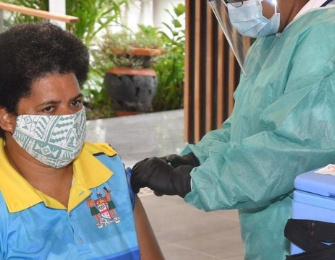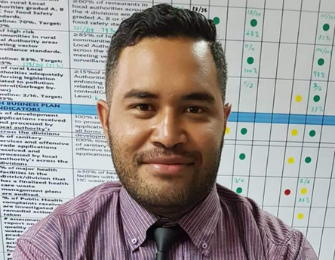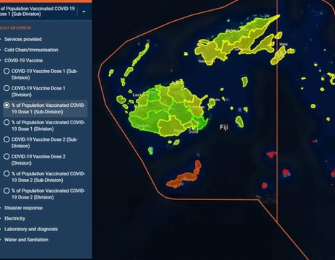Inappropriate use of antibiotics is widespread across the globe, contributing to antimicrobial resistance (AMR), including in Pacific Island countries where AMR is now a major health threat.
Through the Mitigating the threat of Antimicrobial Resistance in Pacific Island Countries (COMBAT AMR) project, PNG, Solomon Islands, Samoa and Fiji will have: staff trained in infection prevention and control (IPC), improved antimicrobial stewardship, increased laboratory capacity for testing and surveillance for World Health Organization (WHO) AMR priority pathogens and better understanding of AMR by animal health workers.
This will lead to better AMR knowledge in the Pacific, better control of the spread of AMR and reduced impact from infectious diseases. How the project will do it: This project will support four areas of existing national AMR plans.
Infection prevention and control
Key in-country health workers with the potential to drive change will participate in a training and mentorship program. COMBAT AMR will develop their skills to train other staff to implement and sustain new IPC activities within their health facility. The training and mentorship will include in-country workshops to build knowledge, combined with hosted visits to observe more mature IPC programs in Australia to facilitate new ideas and establish mentoring relationships.
Antimicrobial stewardship
Antimicrobial stewardship will be built up in major hospitals in all four project countries. COMBAT-AMR will train local staff to assess current antimicrobial use and identify areas where antimicrobials may be used too frequently or inappropriately. This will generate information about the patterns of use and identify target areas for action. Assistance will then be provided to; revise guidelines and practices for antibiotic use; communicate and raise awareness amongst health professionals and consumers and implement strategies to improve antimicrobial stewardship across the healthcare settings. COMBAT-AMR will also explore tools that can be used for surveillance of drug consumption volume and supply to inform practices.
Laboratory capacity and surveillance
This project will improve the capacity of laboratory staff through training and mentoring so they can detect AMR pathogens accurately and quickly; and conduct surveillance and reporting of WHO AMR priority pathogens. COMBAT AMR will also develop strategies to address the interruptions and delays in laboratory supplies and equipment maintenance.
Animal health
In consultation with local animal health workers, COMBAT AMR will implement targeted activities based on each country’s assessed needs. Activities may include training animal laboratory workers to perform effective surveillance of WHO AMR priority pathogens, training animal health workers to collect samples in the field, and interventions to improve antimicrobial use in animals.
There was a strong pivot within the IPC component of COMBAT-AMR toward the COVID-19 response, including support for the production of alcohol hand rub in hospitals; IPC standard operating procedure development and translation; and remote training, mentoring and communications for IPC to health workers. Additional activities have been funded to support the COVID-19 response in PNG and Pacific Islands countries.
The project is supporting COVID-19 RT-PCR testing and providing technical assistance and supplies, validation for rapid serology tests, remote training and evaluations of point-of-care testing.




